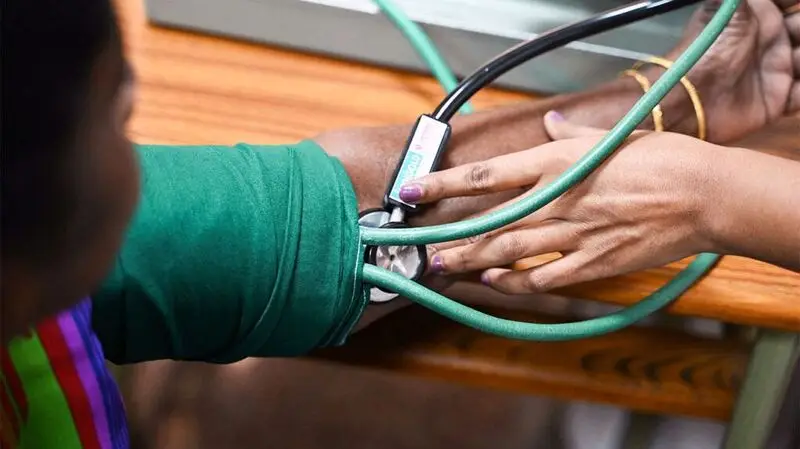
- In a new study, researchers report that people with worsening metabolic syndrome face a higher risk of developing all types of cancer.
- They noted that the risk of developing kidney cancer was the highest.
- More than one-third of adults in the United States have metabolic syndrome.
- Doctors recommend regular screening for cancer and metabolic syndrome, along with maintaining a healthy lifestyle.
New research shows that worsening metabolic syndrome – which is present in
Metabolic syndrome is not a single condition, but rather the term applied when a person has three or more of the following markers: central or abdominal obesity, high blood pressure, high blood sugar, high serum triglycerides, and low serum high-density lipoprotein.
It’s been established that metabolic syndrome and its underlying conditions are associated with cardiovascular issues as well as
The
Two doctors interviewed by Medical News Today said that the research highlights the importance of early intervention as a way to limit one’s risk of Health conditions later in life.
The individual conditions that comprise metabolic syndrome all carry their own health risks, but the overlapping of these multiple risk factors compound matters further.
The risk of
“Our study can guide future research into the biological mechanisms linking metabolic syndrome to cancer, potentially resulting in targeted treatments or preventive strategies. Formal evaluation of these interventions will be needed to determine if they are able to modulate cancer risk,” Dr. Han-Ping Shi, a senior study author and a surgeon at the Capital Medical University in Beijing, said in a release.
Shi and his colleagues reported that over a median follow-up period of more than 9 years, research participants with elevated and increasing metabolic syndrome faced a higher risk of developing any kind of cancer. Of note, the risk of developing kidney cancer was more than 4 times higher than those with a low-stable trajectory.
Dr. Anton Bilchik, a surgical oncologist and chief of medicine and director of the Gastrointestinal and Hepatobiliary Program at Providence Saint John’s Cancer Institute in California, told Medical News Today that these findings give unique insights into the long-term progression of metabolic syndrome.
“This study is unique in that this is a large prospective cohort study, unlike most studies which retrospectively demonstrate a higher risk of people developing cancer with metabolic syndrome. It also evaluates the trajectory of metabolic syndrome over a four-year period,” Bilchik, who wasn’t involved in the research, explained.
“While it is known that inflammation contributes to the development of cancer, this study demonstrates that the combination of inflammation and metabolic syndrome carries an even higher risk of developing several common cancers: breast, colon, endometrial, and liver cancer,” he added.
A
Between 1988 and 1994, slightly more than 25% of adults in the United States had metabolic syndrome. The next period, which encompassed the years 1999 to 2006, saw a slight dip, with researchers reporting that the number had fallen to exactly 25 percent.
However, in the third time period studied, 2007 to 2012, the numbers rose to 34% of U.S. adults.
Dr. Cheng-Han Chen, an interventional cardiologist and medical director of the Structural Heart Program at MemorialCare Saddleback Medical Center in California, told Medical News Today that the research is an important reminder of getting screened for metabolic syndrome – and taking proactive steps to curb its effects.
“These results highlight the importance of early and widespread screening for metabolic syndrome in the general public,” Chen, who wasn’t involved in the research, said. “If we can affect early intervention and control of the components of metabolic syndrome, we can potentially reduce the risk of developing many types of cancers.”
The components that make up metabolic syndrome – hypertension, high cholesterol, high sugar, and high body fat – are fairly straightforward to monitor and address.
“There are many things we can actively do to reduce our risk of cancer in the future: maintain a healthy weight, eat a healthy diet, get regular exercise, avoid smoking and alcohol, protect yourself from the sun, and follow recommended cancer screening guidelines,” Chen advised.





